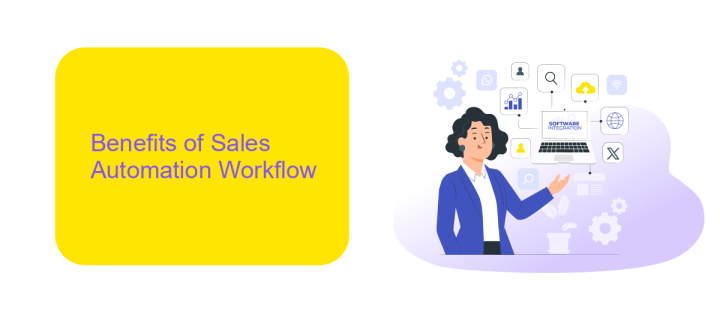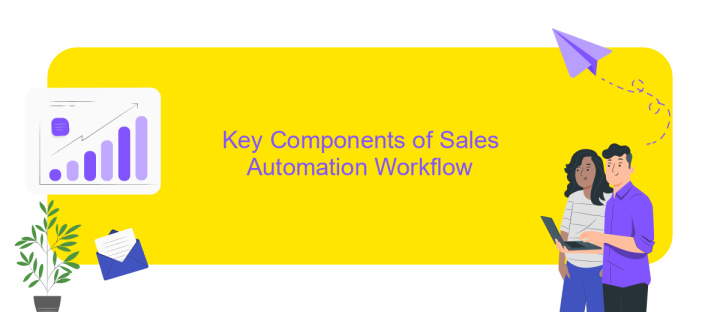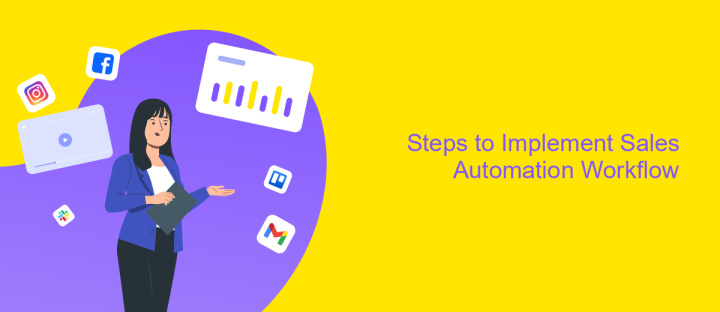Sales Automation Workflow
Sales automation workflow is a transformative approach that streamlines and optimizes the sales process through technology. By automating repetitive tasks, sales teams can focus on building relationships and closing deals more efficiently. This article explores the key components, benefits, and implementation strategies of sales automation workflows, providing insights on how to leverage these tools to boost productivity and drive revenue growth.
Introduction
Sales automation workflow is a crucial aspect of modern business operations, designed to streamline and enhance the efficiency of sales processes. By automating repetitive tasks, sales teams can focus more on building relationships and closing deals. This approach not only saves time but also reduces the likelihood of human error, ensuring a more consistent and reliable sales process.
- Automated lead generation and nurturing
- Seamless integration with CRM systems
- Efficient task management and follow-ups
- Accurate sales forecasting and reporting
One of the essential tools for setting up and managing integrations in sales automation is ApiX-Drive. This service allows businesses to easily connect various platforms and applications, ensuring smooth data flow and synchronization. By leveraging ApiX-Drive, companies can create a more cohesive and efficient sales automation workflow, ultimately leading to increased productivity and better sales outcomes.
Benefits of Sales Automation Workflow

Implementing a Sales Automation Workflow significantly enhances efficiency by streamlining repetitive tasks, allowing sales teams to focus on high-value activities. Automated processes such as lead nurturing, follow-ups, and data entry reduce human error and ensure that no potential customer is overlooked. This results in a more organized sales pipeline, quicker response times, and ultimately, higher conversion rates.
Moreover, sales automation tools often come with integration capabilities, making it easier to connect various platforms and systems. For instance, using services like ApiX-Drive, businesses can effortlessly integrate their CRM, email marketing, and other sales tools, creating a seamless workflow. This not only saves time but also provides a unified view of customer interactions, enabling more informed decision-making and personalized customer experiences.
Key Components of Sales Automation Workflow

Sales automation workflow consists of several key components that streamline and optimize the sales process, ensuring efficiency and accuracy. These components work together to reduce manual tasks and enhance productivity.
- Lead Management: Automating the process of capturing, tracking, and nurturing leads ensures no potential customer is overlooked.
- Customer Relationship Management (CRM): Integrating CRM systems helps manage customer interactions and data, providing valuable insights and improving customer relationships.
- Email Campaigns: Automating email marketing campaigns allows for personalized communication with prospects and customers, increasing engagement and conversions.
- Task Automation: Automating repetitive tasks such as follow-ups, scheduling, and data entry saves time and reduces errors.
- Integration Tools: Services like ApiX-Drive facilitate seamless integration between various sales tools and platforms, ensuring data consistency and streamlined workflows.
By implementing these key components, businesses can create a more efficient and effective sales process. Automation not only saves time but also ensures that sales teams can focus on high-value activities, ultimately driving better results and higher revenue.
Steps to Implement Sales Automation Workflow

Implementing a sales automation workflow involves several crucial steps to ensure seamless integration and optimal performance. Start by identifying the specific tasks and processes that can be automated within your sales cycle. This includes lead generation, follow-ups, and data entry, among others.
Next, select the appropriate tools and platforms that support sales automation. Integrating these tools effectively is essential for a smooth workflow. Services like ApiX-Drive can facilitate the integration of various applications, ensuring that data flows seamlessly between them.
- Identify repetitive tasks and processes for automation.
- Choose the right sales automation tools and platforms.
- Integrate tools using services like ApiX-Drive.
- Test the automated workflow to ensure it operates correctly.
- Monitor and optimize the workflow for continuous improvement.
Finally, it is crucial to regularly review and refine the automated processes. This ensures that the workflow remains efficient and adapts to any changes in the sales strategy or business environment. By following these steps, you can create a robust sales automation workflow that enhances productivity and drives better results.
Best Practices for Sales Automation Workflow
To optimize your sales automation workflow, start by clearly defining your sales process. Map out each stage from lead generation to closing the deal, ensuring that every step is documented and streamlined. This clarity helps in identifying repetitive tasks that can be automated, saving your team valuable time and reducing human error. Regularly review and update your workflow to adapt to changing business needs and market conditions.
Leverage integration tools like ApiX-Drive to connect various sales platforms and applications. Integrating your CRM, email marketing, and analytics tools can provide a seamless flow of information, enhancing efficiency and data accuracy. ApiX-Drive simplifies the integration process, allowing you to automate data transfers and synchronize information across different systems without requiring extensive technical knowledge. This ensures that your sales team has access to up-to-date information, enabling them to make informed decisions and focus on closing deals.
FAQ
What is Sales Automation Workflow?
How can Sales Automation Workflow improve my sales process?
What types of tasks can be automated in a Sales Automation Workflow?
How do I integrate Sales Automation Workflow with my existing CRM?
Is it difficult to set up a Sales Automation Workflow?
Apix-Drive is a simple and efficient system connector that will help you automate routine tasks and optimize business processes. You can save time and money, direct these resources to more important purposes. Test ApiX-Drive and make sure that this tool will relieve your employees and after 5 minutes of settings your business will start working faster.

